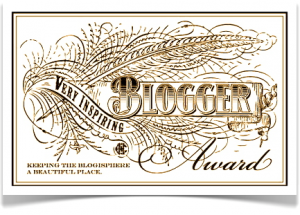“Courage is not the absence of fear, but rather the judgment that something else is more important than fear.”
~ Ambrose Redmoon
Courage is not usually a word anxiety sufferers would list as one of their most outstanding attributes. Yet it should be.
For even the best of lives are thorn-ridden with frustration, disappointment, and loss. Add the extremely difficult challenge of trudging through outer problems while contending with the inner turmoil of anxiety, and it’s apparent that fortitude, determination — and yes, courage — are some of the strengths that anxious people may not even realize they posses.
Yet people with anxiety probably carry these strengths in higher reserves than those without anxiety.
Unfortunately, people with anxiety often feel a much larger share of shame and regret, labeling themselves as weak people who can’t control their fears. What people who suffer from anxiety must realize — and remind themselves of — is that anxiety is not something that they brought upon themselves; nor does it make them any weaker than anyone else.
According to Scott Stossel, author of the wildly popular book, My Age of Anxiety: Fear, Hope, Dread, and the Search for Peace of Mind, the overwhelming conclusion culminating from tens of thousands of studies on the heritability of anxiety show that the susceptibility to anxiety is strongly determined by genes.
The genetics of anxiety not only make people whom inherent the “worry” gene, more prone to anxiety, it may also make it more difficult to overcome. A Science Daily article dated on March 11, 2009, cites research provided by the Association for Psychological Science, which findings suggest that those susceptible to anxiety disorders are more prone to developing fears, and at the same time, less likely to overcome any fears that arise.
If anxiety stems largely from genetics, our society’s conventional response of “just pull up your socks and deal,” can be seen as both outdated and unrealistic. Just like other inherited medical issues which may cause people to have to turn to the necessary aids of physical therapy, medications, or surgery to correct, anxiety should be viewed as just a real — and sometimes an even more difficult — challenge. To understand and ultimately work toward the most beneficial healing process, it’s time to let go of the fallacy that those who struggle with this debilitating disease are weak.
As Associate Director of the Anxiety and Phobia Treatment Center for White Plains Hospital Center, Martin N. Seif, Ph.D., a clinician who has thirty years experience treating anxiety disorders (and has lived through the crippling effects of anxiety himself), says, “Courage is the discomfort that you are willing to experience in order to reach a goal.” Learning to challenge your anxiety is about resisting the urge to avoid whatever it is that makes you fearful. Seif notes that this is the demonstration of what real courage is all about.
Toward the end of My Age of Anxiety, Stossel shares that even though his anxiety has made him feel like a vulnerable wreck at times, he still recognizes that he probably isn’t as weak as he thinks he is. As his “Dr. W.” points out, living with an anxiety disorder is a handicap.
To manage anxiety while carrying on the best you can (even when you don’t think you are), is a greater accomplishment than anxiety-sufferers give themselves credit for. An accomplishment that equals an invisible, yet determined kind of courage that should be celebrated.
Tracy Shawn lives and writes on the Central Coast of California. Her award-winning novel, “The Grace of Crows,” is about how an anxiety-ridden woman finds happiness through the most unexpected of ways—and characters. Dubbed a “stunning debut novel” by top 50 Hall of Fame reviewer, Grady Harp, The Grace of Crows has also been hailed as an accurate portrayal of generalized anxiety disorder and a healing opportunity to the reader. Please visit www.tracyshawn.com for more information.

